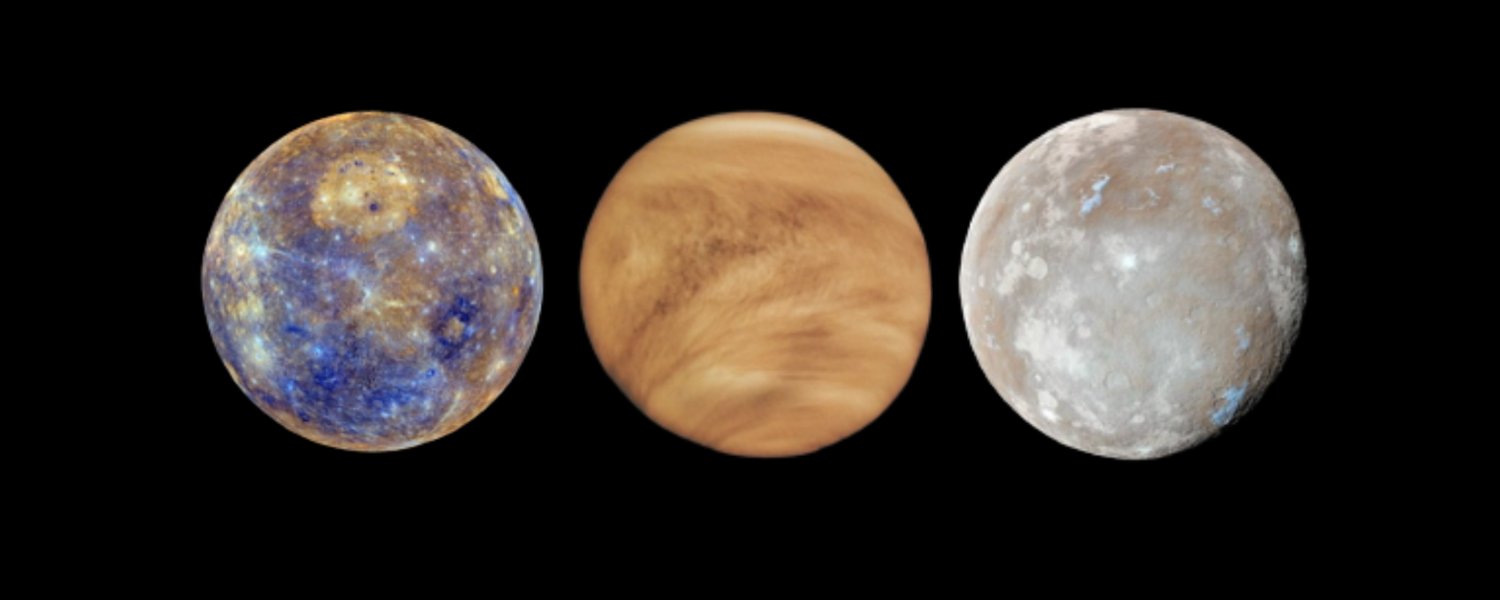You probably got this planet-sized fact wrong (87% did)
Dear Magicians,
I need to tell you something that’s been keeping me up at night.
Last week, I asked my X and YouTube audiences a simple question: “Which planet is closest to Earth on average?”
87% got it wrong.
These aren’t random people. These are folks who voluntarily watch astronomy content. Smart people. Curious people.
Most said Venus. Or Mars. Some even said Ceres was it (it’s not even a planet!)
Wrong.
The answer is Mercury.
I know. Many astronomers didn’t believe it either at first.
Here’s why your brain failed you.
You’re thinking about the closest Venus ever gets to Earth — about 38 million kilometers. That’s closer than Mercury ever gets.
But that’s not the question.
The question is average distance. Over time. As the planets orbit.
And here’s the thing: Venus and Earth are on similar orbits around the Sun. About half the time, Venus is on the complete opposite side of the Sun from us.
Way out there. Like 258 million kilometers away.
Mercury stays closer to the middle. Always near the Sun. Never wandering too far from the center of the solar system.
When you do the math — and scientists have done this with simulations — Mercury averages 1.04 astronomical units from Earth.
Venus? 1.14.
Mercury wins.
Think of it this way.
Imagine runners on a circular track. You and Venus start on opposite sides of the same track. Mercury is on the inside track.
Who are you closer to on average? The person who’s sometimes next to you but often across the stadium? Or the person who stays near the center?
The center wins. Every time.
Here’s the wild part.
Mercury isn’t just closest to Earth on average. It’s closest to Mars. To Jupiter. To Neptune.
Mercury is the closest planet to every other planet in the solar system.
Mind. Blown.
Why does this matter?
Because if 87% of my scientifically literate audience gets basic orbital mechanics wrong, what does that say about how we teach space?
How we think about distance?
How we trust our intuitions about things we can’t directly experience?
This is a Copernican moment. We assumed Venus was our neighbor because it’s next door in the planetary lineup.
But space doesn’t work like houses on a street.
The lesson?
Question even the “obvious” stuff.
Especially the obvious stuff.
Here’s a fun trick: next time someone confidently tells you the Sun is the center of the Solar System ask them to prove it. Most can’t. Yet they assume it’s true.
But don’t just watch their world collapse, like yours probably did five minutes ago. Help them understand.
Until next time, have a M.A.G.I.C. Week,
Brian
Appearance
Here’s Cal’s description of what the episode is about…
Cal Newport talks with Brian Keating on how to focus like a Nobel prize winner in an In-Depth episode of the Deep Questions podcast.
In this episode of IN-DEPTH, Cal is joined by Dr. Brian Keating, the Chancellor’s Distinguished Professor of Physics at UCSD, and one of the most prolific popularizers of science around (you may have seen him recently chatting about cosmology with Joe Rogan and Andrew Huberman). They talk about Keating’s new book, HOW TO FOCUS LIKE A NOBEL PRIZE WINNER, as well as many other topics, including a deep look at Keating’s unusual path to academia, and a deconstruction of what’s needed to succeed at the highest levels of academia.
Genius
I’m up against some real geniuses and need your help! When I wrote Losing the Nobel Prize, I thought my destiny was clear: runner-up forever. But plot twist: The INTO THE IMPOSSIBLE Podcast is a Finalist in the 2025 Signal Awards (Science & Education). That means we might finally replace my Nobel “L” with a shiny “W.” There’s just one problem: I need your help –The Listener’s Choice Award is decided by you. Not a committee of Swedish academics who can ignore me. Not a panel of judges. Just you.
👉 Cast your vote here! Hurry — Voting closes October 9, 2025.
Look, I’ve made peace with losing the Nobel. But losing a popularity contest where I can literally ask for votes? That would be embarrassing.
Help me swap Nobel heartbreak for Signal glory.
Image
Sunset from the Perservence Rover on the 3rd closest planet [on average] to Earth — Mars.
Conversation
What if everything you thought you knew about the Big Bang was just a brilliant myth? Join me as I sit down with cosmologist Niayesh Afshordi to unravel the deepest mysteries of the universe, from cosmic singularities and creation myths to the controversial question: Was the Big Bang really the beginning of it all?
Advertisement
This edition of the Monday M.A.G.I.C. Message is sponsored by Shortform.
Steven Pinker’s new book When Everyone Knows was fascinating. But it was a challenge to prepare for our interview because Steven is so prolific. To understand his body of work more fully, I relied on Shortform’s superpowered guides. Their app covers The Better Angels of Our Nature and Enlightenment Now, with commentary that connects Pinker’s ideas to thinkers like Daniel Kahneman and Richard Dawkins.
As a scientist and professor, I also use Shortform’s Chrome extension daily—it generates instant AI summaries of long articles, condensing Nobel-caliber content into digestible insights without slowing me down before my next lecture.My audience gets an exclusive deal: start a free trial plus get three extra months free with an annual plan at shortform.com/briankeating.



